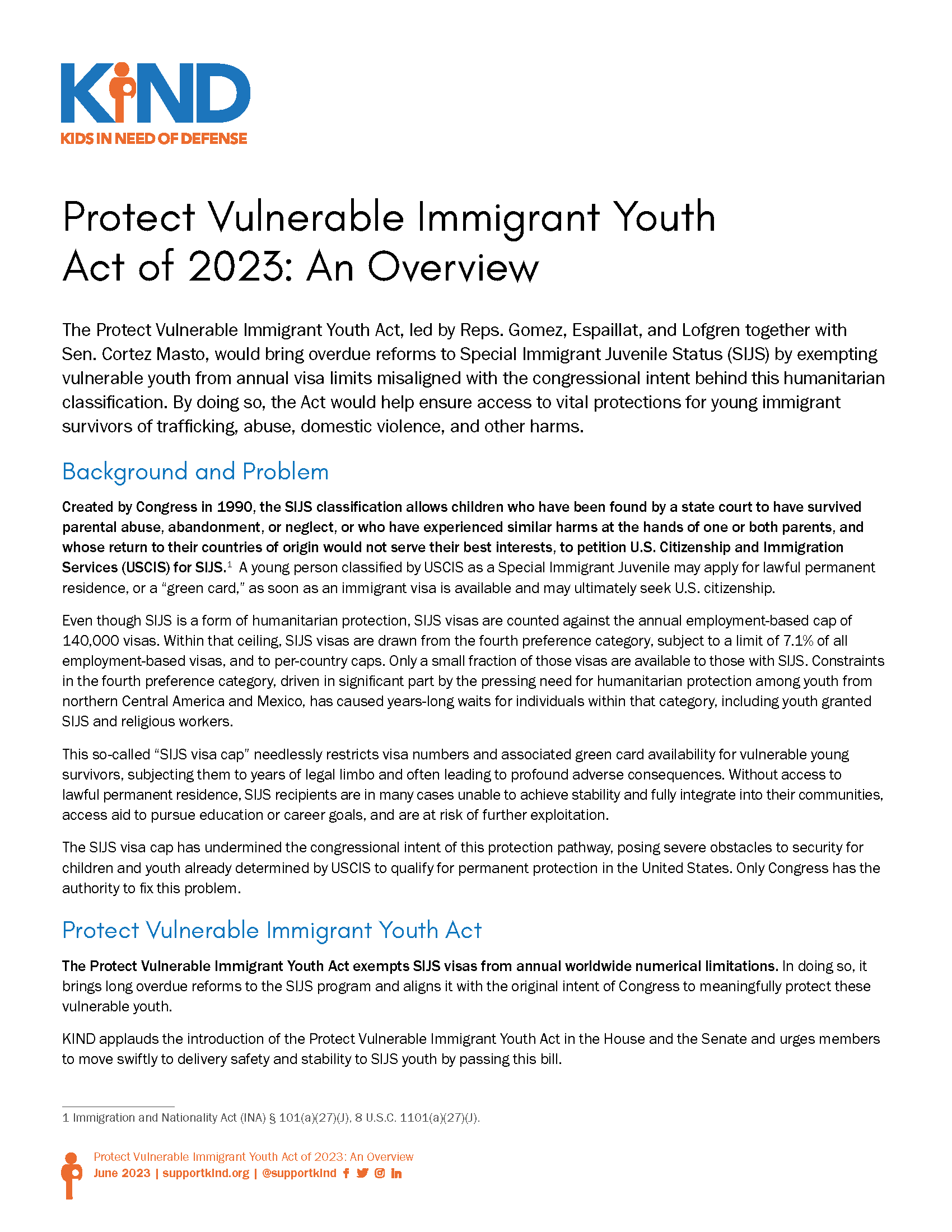
Special Immigrant Juvenile Status (SIJS) was established by Congress in 1990 to provide a pathway for children who have endured parental abuse, abandonment, neglect, or similar harm. This classification enables these children, whose return to their home countries would not be in their best interests, to seek assistance from U.S. Citizenship and Immigration Services (USCIS) by filing a petition for SIJS. Once granted SIJS, these young individuals, recognized as Special Immigrant Juveniles by USCIS, can apply for lawful permanent residence, commonly known as a “green card,” as soon as an immigrant visa becomes available. Ultimately, they may also pursue U.S. citizenship.
While SIJS is a humanitarian protection measure, it’s important to note that SIJS visas fall within the annual employment-based cap of 140,000 visas. These visas are categorized under the fourth preference, with a limit of 7.1% of all employment-based visas and subject to per-country caps. Unfortunately, only a small fraction of these visas are allocated to those eligible for SIJS. Consequently, the constraints within the fourth preference category, largely due to the urgent need for humanitarian protection among young individuals from northern Central America and Mexico, have resulted in lengthy waiting periods for individuals in this category, including those granted SIJS and religious workers.
This “SIJS visa cap” unnecessarily restricts visa numbers and the availability of green cards for vulnerable young survivors, subjecting them to prolonged legal uncertainty and often leading to significant adverse consequences. Without access to lawful permanent residence, SIJS recipients are frequently unable to attain stability, fully integrate into their communities, access educational or career opportunities, and remain at risk of further exploitation.
The SIJS visa cap undermines the original congressional intent behind this protective pathway, imposing significant obstacles to the security of children and youth who have already been determined by USCIS to qualify for permanent protection in the United States. Addressing this issue requires action from Congress, as they have the authority to rectify this problem and ensure a more viable solution for vulnerable young individuals.
